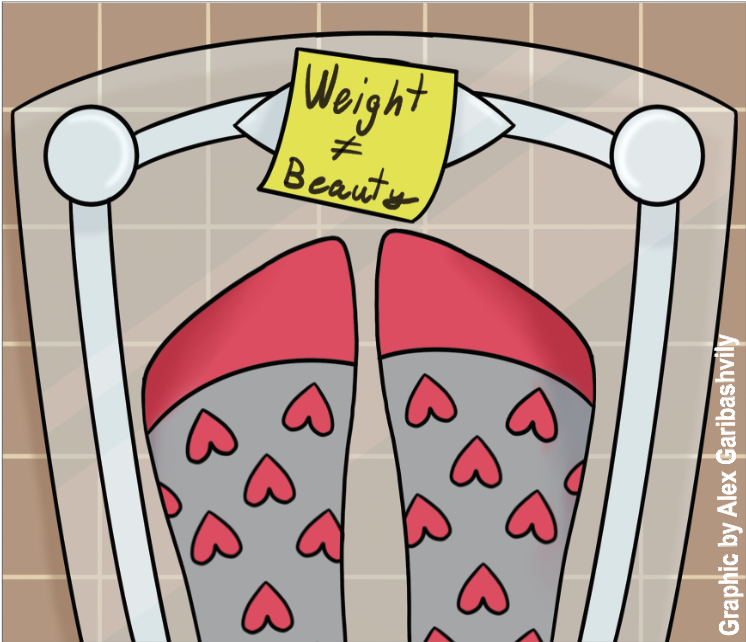Weight does not determine beauty
I stood in the grungy bathroom stall at summer camp, ready to step out and wash my hands in the communal sink. Before I unlatched the lock, my friend, standing at the mirror, said, “I look so fat.”
Still standing in the stall, I started to panic. How was I going to console her? The lame response awkwardly fell from my mouth: “No, you’re beautiful!”
“I didn’t say I was ugly,” she said. “I just said I was fat.”
My heart sank.
Guilt washed over me as I silently stood in the stall, wishing to disappear. I had equated her weight to her beauty. It was not my place to make that comment — nor would it be anyone else’s.
I now know that my panic came from a place of ignorance. Why did I feel I needed to reassure her she wasn’t fat?
It doesn’t matter whether my friend was fat. The problem was with my response to her comment.
The word “fat” should be treated as an adjective, not an insult, just like how people have different heights and hair colors. There is no panic when someone says “My hair is so brown,” because there isn’t a stigma attached to having brown hair. However, the stigma surrounding fatness is all too common in society.
Registered dietician Kimmie Singh said in a video conference that fatphobia is the negative perception or attitude toward bodies that have “too much” fat. These perceptions differ among cultures and subcultures.
We have been socialized to associate the word “fat” with “ugly” and to condemn those who are fat, but we need to recognize that all bodies are deserving of respect no matter age, appearance, weight, height, ability or race. Beauty can be achieved at any size and assuming people’s attractiveness based on their weight can be harmful.
As a society, we have to acknowledge the very real existence of fatphobia. Having conversations about the stigma surrounding weight is a productive way to help educate others. We have to question our own biases regarding the judgments we make about others’ appearances and how the root of those judgments can come from bigotry.
If I could go back to that grungy bathroom stall with my current understanding of fatphobia, I would not feel the need to reassure my friend. Instead, I would ask her if her comment came from a place of negativity. From there, we could engage in a conversation about the pressures from society to look a certain way, because after all, size doesn’t define beauty.


